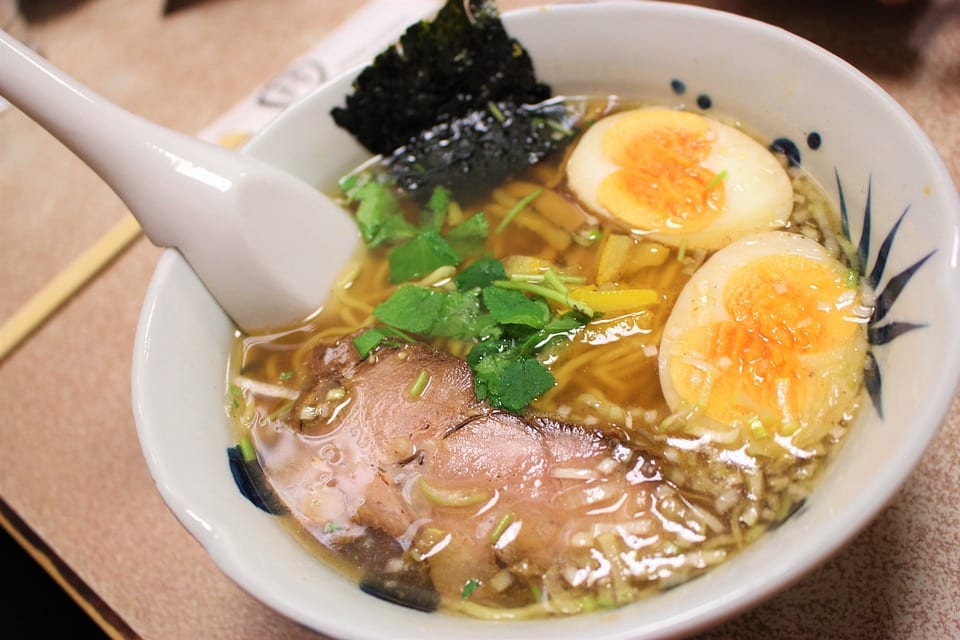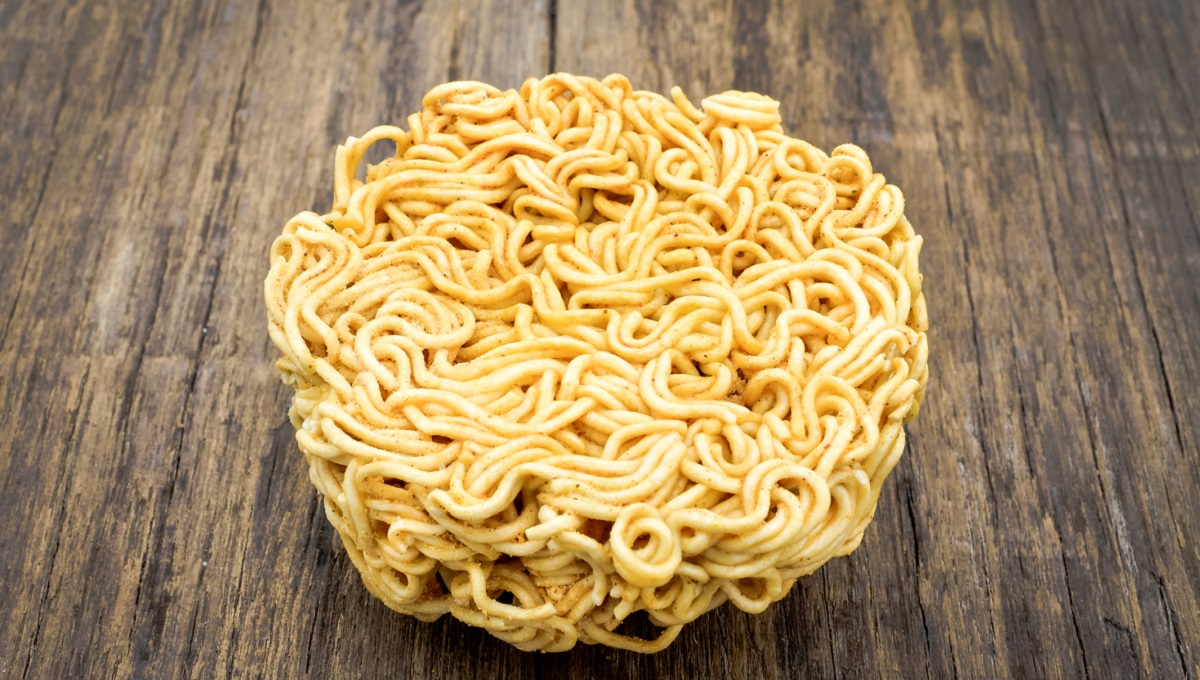Ramen noodles have become a staple in kitchens worldwide, offering a quick, affordable, and delicious meal for millions of people. However, the question "is there a ramen noodle recall" has been circulating among consumers, sparking concerns about food safety. If you're wondering whether your favorite instant noodles are safe to eat, this article will provide all the information you need to make informed decisions.
Ramen noodles are not just a comfort food; they are a cultural phenomenon that transcends borders. From Japan to the United States, these noodles are enjoyed by people of all ages. However, food safety is a critical concern, and understanding whether a recall has occurred can help protect your health and well-being.
In this comprehensive guide, we will explore the history of ramen noodle recalls, examine recent cases, and provide practical advice to ensure the safety of the products you consume. Whether you're a ramen enthusiast or simply curious about food safety, this article will equip you with the knowledge you need.
Read also:Emma Anthurium Actress Rising Star Of The Entertainment Industry
Table of Contents
- The History of Ramen Noodle Recalls
- Recent Cases of Ramen Noodle Recalls
- Common Causes of Ramen Noodle Recalls
- Brands Involved in Ramen Noodle Recalls
- How to Prevent Ramen Noodle Contamination
- Health Risks Associated with Ramen Noodle Recalls
- Food Safety Regulations for Ramen Noodles
- Tips for Consumers to Stay Safe
- Statistics on Ramen Noodle Recalls
- The Future of Ramen Noodle Safety
The History of Ramen Noodle Recalls
Ramen noodles have been around for over a century, with their origins tracing back to Japan. Over the years, the popularity of instant noodles has grown exponentially, making them a household name globally. However, as with any mass-produced food item, there have been instances where recalls have occurred.
Historically, ramen noodle recalls have been linked to various factors, including contamination, mislabeling, and quality control issues. For example, in the early 2000s, a major recall occurred due to the presence of undeclared allergens in certain brands. This event highlighted the importance of strict food safety protocols and transparency in labeling.
Key Historical Recalls
- 2001: A recall in Japan due to contamination with plastic residues.
- 2010: A global recall involving undeclared allergens, specifically peanut traces.
- 2015: A recall in the United States due to metal shavings found in packaging.
Recent Cases of Ramen Noodle Recalls
In recent years, there have been several notable cases of ramen noodle recalls that have raised awareness about food safety. These incidents have prompted regulatory bodies to take action and enforce stricter guidelines for manufacturers.
One of the most significant recent cases occurred in 2022 when a popular brand was forced to recall its products due to the presence of harmful bacteria. This recall affected millions of consumers worldwide and led to a reevaluation of production processes.
Case Study: 2022 Recall
The 2022 recall was initiated after reports of Salmonella contamination were confirmed in several batches of ramen noodles. The contamination was traced back to a supplier who failed to adhere to proper hygiene standards. This case underscores the importance of maintaining a robust supply chain management system.
Common Causes of Ramen Noodle Recalls
Understanding the root causes of ramen noodle recalls is essential for both consumers and manufacturers. Below are some of the most common reasons why recalls occur:
Read also:Movierulz Kannada 2024 Ndash The New Wave Of Unauthorized Movie Streaming
- Contamination: The presence of harmful bacteria, such as Salmonella or E. coli, can lead to widespread recalls.
- Mislabeling: Failure to disclose allergens or incorrect nutritional information can pose serious risks to consumers.
- Packaging Issues: Defective packaging can result in exposure to contaminants or spoilage.
- Quality Control Failures: Inadequate quality checks during production can lead to substandard products reaching the market.
Brands Involved in Ramen Noodle Recalls
Several well-known brands have been involved in ramen noodle recalls over the years. While these incidents are rare, they serve as a reminder of the importance of vigilance in food production. Below are some of the brands that have faced recalls:
- Nissin
- Maruchan
- Samyang
Each of these brands has taken steps to address the issues and improve their manufacturing processes to ensure the safety of their products.
How to Prevent Ramen Noodle Contamination
Preventing contamination in ramen noodles requires a collaborative effort between manufacturers, regulators, and consumers. Here are some strategies that can help ensure the safety of these products:
For Manufacturers
- Implement rigorous quality control measures at every stage of production.
- Conduct regular audits of suppliers and production facilities.
- Invest in advanced technology to detect contaminants early in the process.
For Consumers
- Check for recalls regularly by visiting official food safety websites.
- Inspect packaging for signs of tampering or damage before purchase.
- Follow cooking instructions carefully to reduce the risk of foodborne illnesses.
Health Risks Associated with Ramen Noodle Recalls
Consuming contaminated ramen noodles can pose serious health risks, especially for vulnerable populations such as children, the elderly, and individuals with compromised immune systems. Some of the potential health risks include:
- Foodborne illnesses caused by harmful bacteria.
- Allergic reactions due to undeclared allergens.
- Chemical contamination from improper packaging materials.
It is crucial for consumers to stay informed about recalls and take necessary precautions to protect their health.
Food Safety Regulations for Ramen Noodles
Governments and regulatory bodies worldwide have established strict guidelines to ensure the safety of ramen noodles. These regulations cover everything from production processes to labeling requirements. In the United States, the Food and Drug Administration (FDA) plays a key role in monitoring food safety and enforcing compliance.
In addition to government regulations, industry organizations such as the International Ramen Manufacturers Association (IRMA) work to promote best practices and standards among producers. These efforts help maintain consumer trust and ensure the quality of ramen noodles.
Tips for Consumers to Stay Safe
As a consumer, there are several steps you can take to ensure the safety of the ramen noodles you purchase:
- Always check for recall notices before buying or consuming any product.
- Choose reputable brands with a proven track record of safety.
- Inspect packaging for any signs of damage or tampering.
- Store products in a cool, dry place to prevent spoilage.
By following these tips, you can minimize the risk of consuming contaminated products.
Statistics on Ramen Noodle Recalls
Data and statistics play a crucial role in understanding the prevalence and impact of ramen noodle recalls. According to recent reports:
- Approximately 5% of all food recalls involve instant noodles.
- Contamination accounts for over 60% of recall cases.
- Mislabeling is the second most common cause, responsible for around 25% of recalls.
These statistics highlight the importance of continuous monitoring and improvement in food safety practices.
The Future of Ramen Noodle Safety
Looking ahead, the future of ramen noodle safety looks promising, thanks to advancements in technology and increased awareness of food safety issues. Innovations such as blockchain technology are being explored to enhance traceability and transparency in the supply chain.
Additionally, consumer demand for safer and healthier food options is driving manufacturers to adopt more sustainable and ethical practices. As the industry continues to evolve, the focus on food safety will remain a top priority.
Conclusion
In conclusion, the question "is there a ramen noodle recall" is a valid concern for consumers who prioritize food safety. By understanding the history of recalls, common causes, and preventive measures, you can make informed decisions about the products you consume.
We encourage you to stay vigilant and check for recall notices regularly. If you have any questions or concerns, feel free to leave a comment below. Additionally, don't forget to share this article with others to help spread awareness about food safety. Together, we can ensure a safer and healthier future for all.


